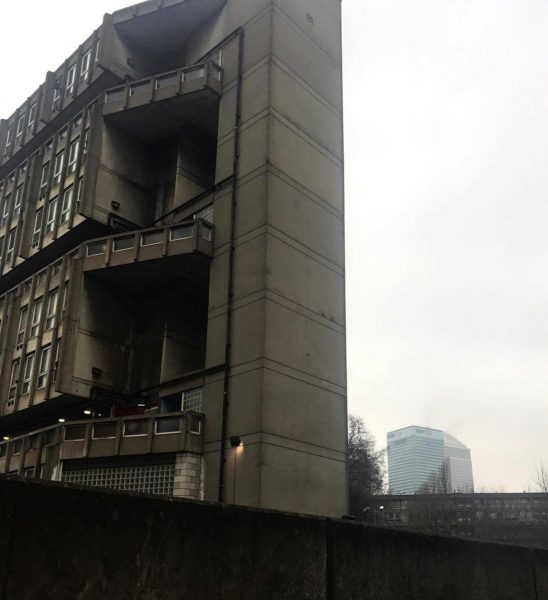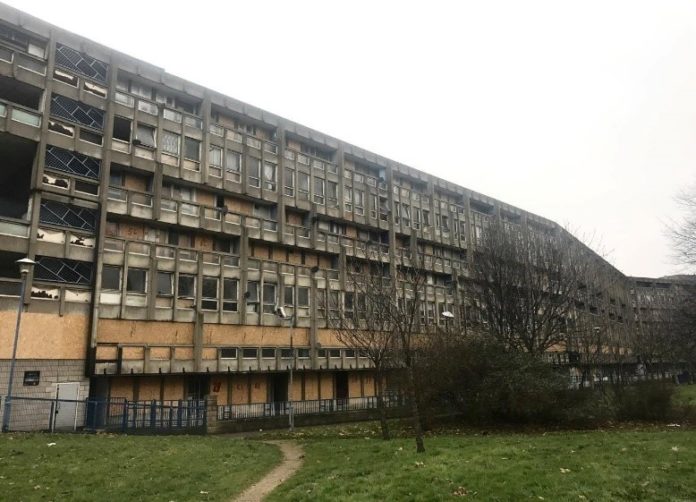Robin Hood is a figure of legend, famous for robbing the rich and giving to the poor. But at Robin Hood Gardens, a well-known housing estate in Poplar, the scenario is somewhat different.
On completion in 1972, the estate was renowned for its ‘streets in the sky’, and tenants moved in with high hopes. In subsequent decades, the declining fortunes of Robin Hood Gardens symbolised the demise of social housing across the UK. More recently, ‘brutalist’ architecture has come back into fashion and the Gardens have become a prime site for profitable re-development – if only existing occupants can be encouraged to move on.
The estate consists of two long, curved blocks, each of them featuring aerial walkways, which face each other across a grassy green area. Currently the western block is boarded up, but its eastern counterpart remains occupied by a ‘mixed economy’ of homeowners and public and private sector tenants.
Landlords Tower Hamlets Council approved redevelopment plans in 2012, and appointed Swan Housing Association as developers on condition that 700 ‘affordable’ homes would be included as part of a blueprint for up to 1700 dwellings. Conversely, around a thousand homes could be listed for sale on the profitable London property market.
The £500 million redevelopment of Robin Hood Gardens forms part of the Blackwall Reach regeneration project.
On its website, Swan insists that “after consultation with the people who lived on the estate, it was decided that a total redevelopment would be the best thing to do.” But its plans met with vociferous opposition – from architects, residents and a local councillor who accused the council of allowing the estate to become rundown so it would be easier to have it knocked down.
As yet, no demolition date has been set.

When I went to see for myself I was amazed at how dilapidated the occupied building was. In the lift, I was met by the smell of urine. The atmosphere was very uninviting: graffiti covered the walls and the surviving homes were strangely silent – a whole world of poverty which overlooks the other world of Canary Wharf, just a few minutes’ walk away.
Residents I spoke to had little or no understanding of the Blackwall Reach project and how it would affect them. Many were surprised and confused when I revealed that their existing homes are in line for demolition. Standing next to the children’s bicycles outside his flat, Mohammed (38) said: “I don’t really know what is going on with that. We haven’t been told anything.”
But others have already left, such as Shirley Magnisky who, interviewed for The Big Issue as long ago as 2011, warned that “the council left it to rot. They deliberately started running it down so that people like me would get fed up and leave.” After accepting another property, her rent went up by more than £60 a week.
Assuming it goes ahead, Blackwall Reach is set to be “fresh, fashionable and above all, different, offering stunning apartments, beautiful open spaces, new shops and community facilities.”
What a pity that the new ‘streets in the sky’ are due to be built over the heads of the impoverished people of Poplar.

